- Quick Look at the 2020 Volkswagen Atlas Cross Sport | MotorTrend - March 13, 2024
- BMW Design – 2009 BMW Z4 – 2009 Detroit Auto Show - March 11, 2024
- Top 10 Car Features Women Love - October 7, 2023
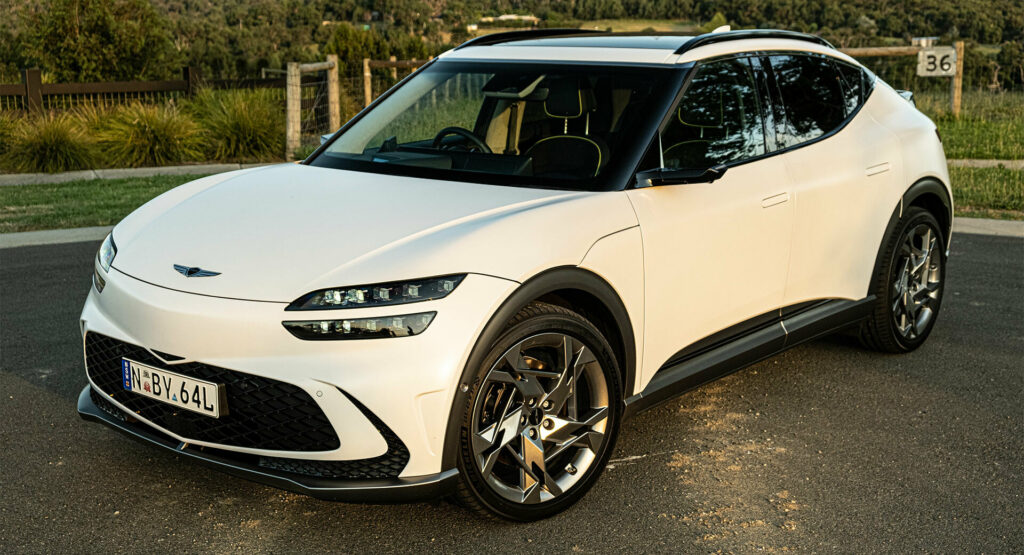
The Genesis GV60 Performance AWD is one of the best luxury EVs on sale
3 hours ago
by Brad Anderson
Sure, the Genesis GV60 may share its underpinnings with the Hyundai Ioniq 5 and Kia EV6 but it feels like a completely different car. In fact, it is one of the very best electric vehicles currently on sale.
Most would agree that the Genesis brand has been on quite a roll in recent years. Just a couple of years after the company’s formation in late 2015, the Korean brand put the sports sedan establishment on notice with the superb G70 and has since followed it up with a raft of other impressive vehicles, including the current generation G80 and G90, as well as the GV70 SUV and GV80 SUV.
Each and every current Genesis model is impressive but as we recently discovered, it is the GV60 that might just be the company’s very best.
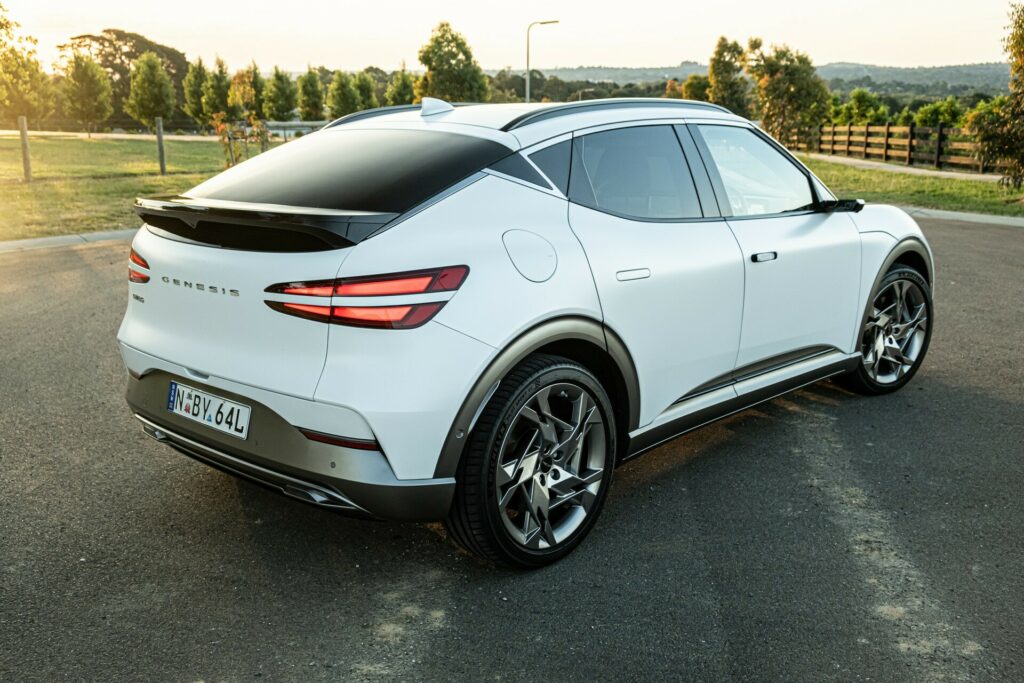
A twist on a familiar powertrain
Underpinning the GV60 is Hyundai’s Electric-Global Module Platform (E-GMP) which brings with it a flat floor and supports two powertrain configurations in Australia. Sitting at the base of the range is the GV60 AWD which features a 74 kW (99 hp) electric motor at the front axle and a 160 kW (214 hp) motor at the rear axle, resulting in a combined 234 kW (314 hp) and 605 Nm (446 lb-ft) of torque.
During the Christmas and New Year period, we had the chance to test and live with the flagship GV60 Performance AWD. This variant rocks a 180 kW (241 hp) motor at the front and a 180 kW (241 hp) motor at the rear, good for 360 kW (483 hp) and 700 Nm (516 lb-ft) of torque in Boost Mode or 320 kW (429 hp) and 605 Nm (446 lb-ft) in every other driving mode.
Both GV60 models receive their juice from the same 77.4 kWh battery pack found in the floor. The standard AWD has a claimed WLTP range of 470 km (292 miles) while the Performance AWD has a WLTP range of 466 km (289 miles). Prices for the GV60 AWD start at AU$113,003 ($79,389) driveaway while the GV60 Performance AWD is available from AU$120,305 ($84,519) driveaway.
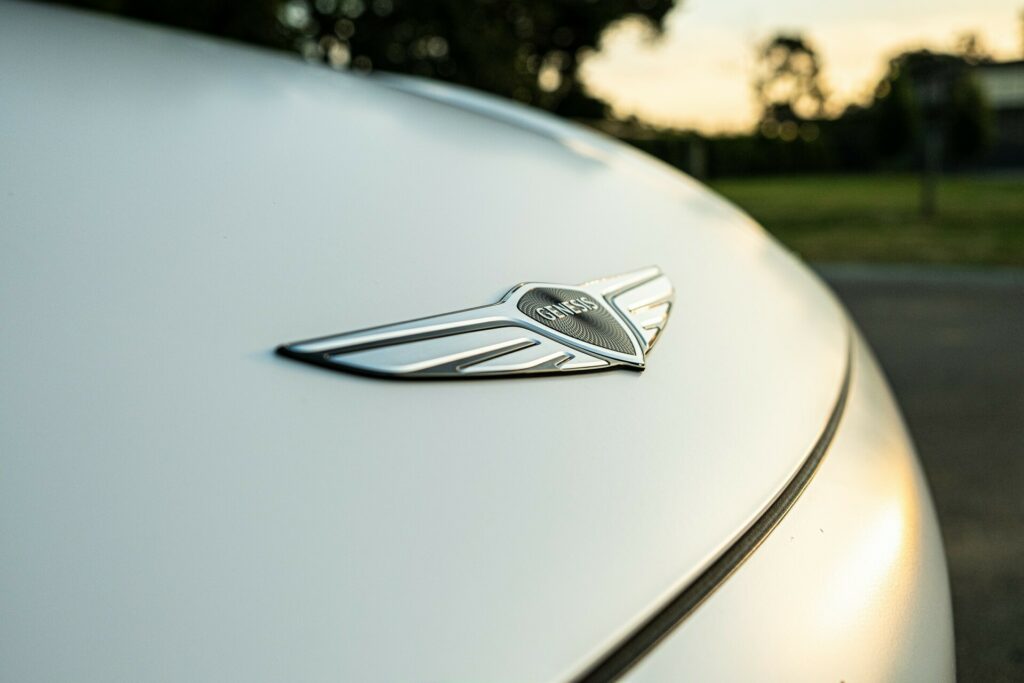
The battery of the GV60 is the same as the one found in the Ioniq 5 and EV6, so it benefits from all the same technology. This means that it is equipped with a 400/800 V multi-rapid charging system that boosts the 400V supplied by a charger to 800V. It takes a mere 18 minutes to charge the battery from 10 per cent to 80 per cent through a 350 kW charger. The GV60 also features a battery conditioning function to keep the battery at the optimal temperature that can even preheat the battery to deliver better performance when the ambient temperature is low.
The GV60 also offers Vehicle to Load functions through the power socket located under the rear seats and the socket that can be plugged into the charging port. It delivers 3.6 kW of power, more than the average power supply of a home, and greatly adds to the versatility of the electric SUV.
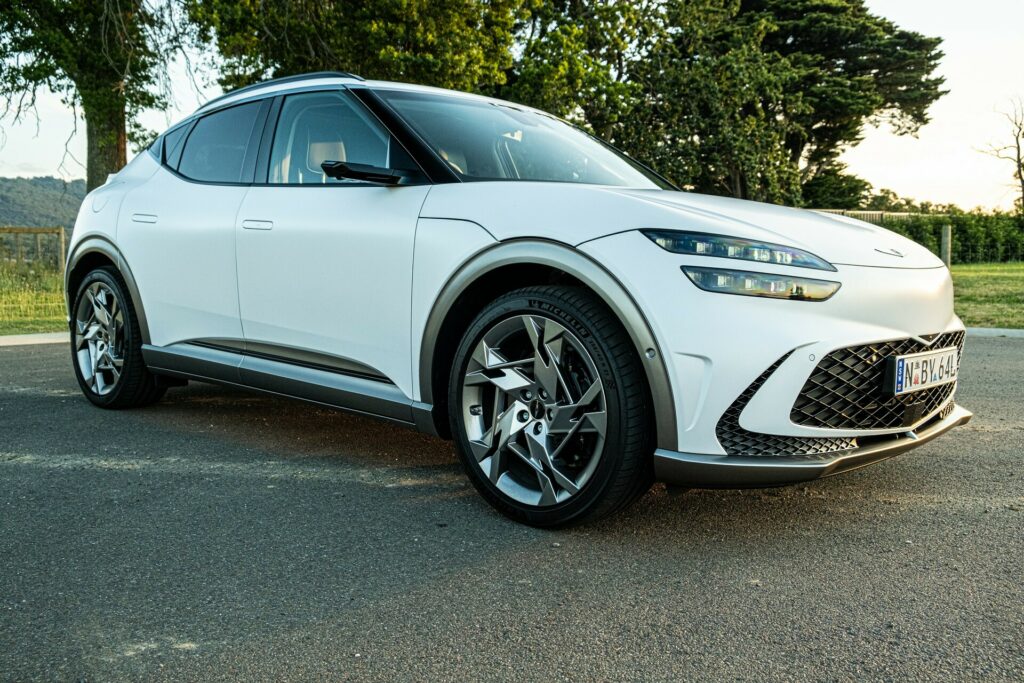
Korean quirkiness
Of course, there is much more to the GV60 than its powertrain. First are the looks.
I’ve driven hundreds of cars in recent years and I don’t think any of them have turned as many heads as the GV60.
Genesis describes its current design philosophy as ‘Athletic Elegance’ and there’s no denying that the GV60 is a striking vehicle to look at, regardless of whether you hate it or love it. The front end is particularly bold thanks to the signature Crest Grille, clamshell bonnet, and the LED Quad Lamps found up front.
Other key design details of the GV60 include the LED taillights, rear LED light bar, the digital side mirrors, flush electric door handles, intriguing C-pillars with a V-shaped chrome motif, and a set of 21-inch wheels on the Performance AWD model we tested. Making our test car stand out even more was the Matterhorn White matte paint.
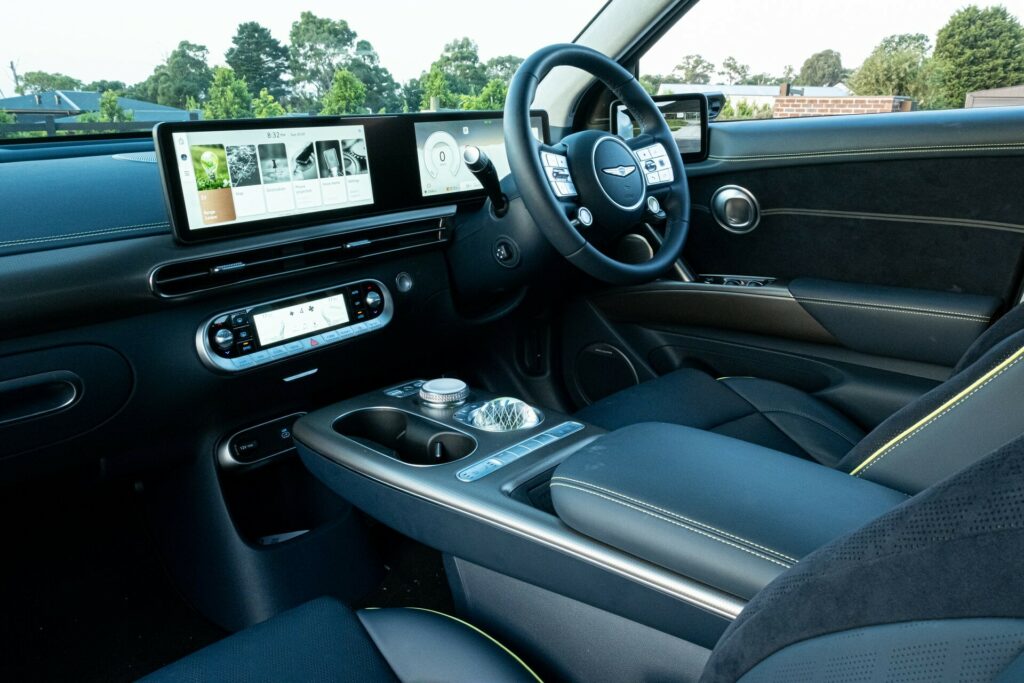
A truly unique cabin experience
For as dramatic as the exterior of the GV60 is, it is the cabin of the SUV that is the real highlight.
Genesis says the interior uses a Korean architectural philosophy emphasizing the ‘Beauty of White Space.’ While that sounds like marketing jumbo to us, the interior is certainly a lovely place to spend time and feels a bit like a spaceship.
Slide into the driver’s seat and you’re presented with a two-spoke steering wheel clad in plush leather with plenty of metal buttons. Glance to your left and you will notice the eye-catching design of the door panels with circular handles, a circular controller to adjust the digital mirrors, and plenty of soft-touch suede.
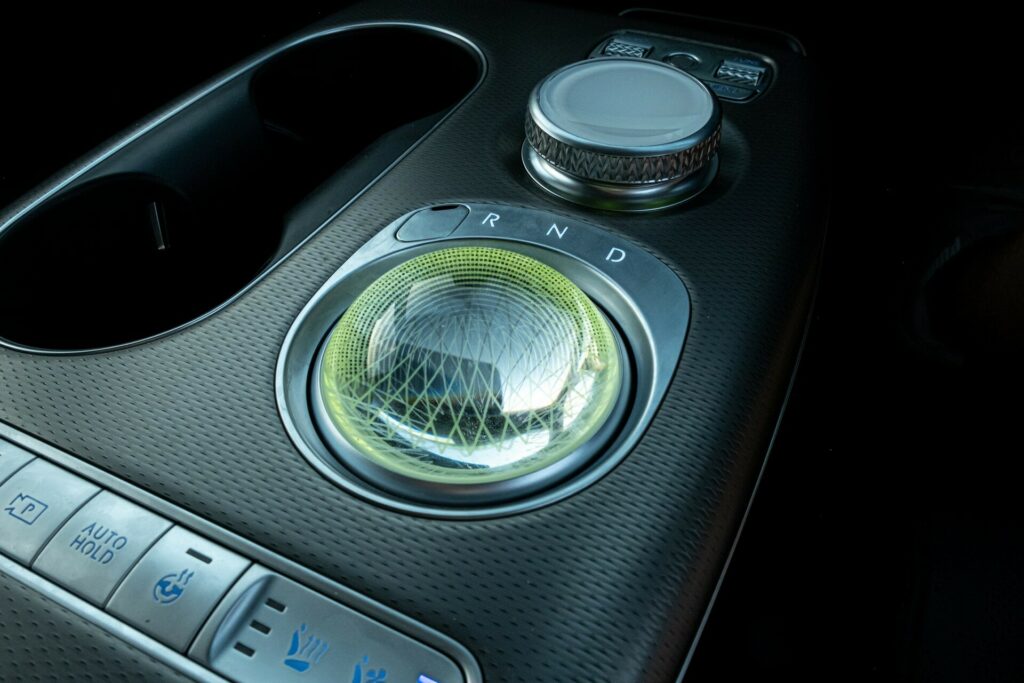
The GV60 also rocks a 12.3-inch digital instrument cluster, a 12.3-inch infotainment screen, and a third screen providing haptic feedback to operate the climate control. Then we come to the piece de resistance of the interior, the ‘Crystal Sphere.’
When the car is switched off, the Crystal Sphere will appear as a glass orb housing a complex array of ambient lights but when the GV60 is turned on, the Crystal Sphere spins around, presenting a Shift-By-Wire selector. Sure, it is a bit of a gimmick but it looks nice, is functional, and also ensures you don’t accidentally spin the rotary controller for the infotainment screen instead of selecting your desired gear, a problem we encountered with the GV70.
Read: 2023 Genesis GV60 EV Starts Just Under $60,000 And Offers Up To 248 Miles Of Range
The cabin is loaded with plenty of other welcome touches. These include 18-way power driver’s seat with memory function, driver’s seat massage functions, heated and ventilated front seats, an excellent Head-Up Display, heated steering wheel, 17-speaker Bang & Olufsen sound system with Digital Radio, and a wireless phone charger.
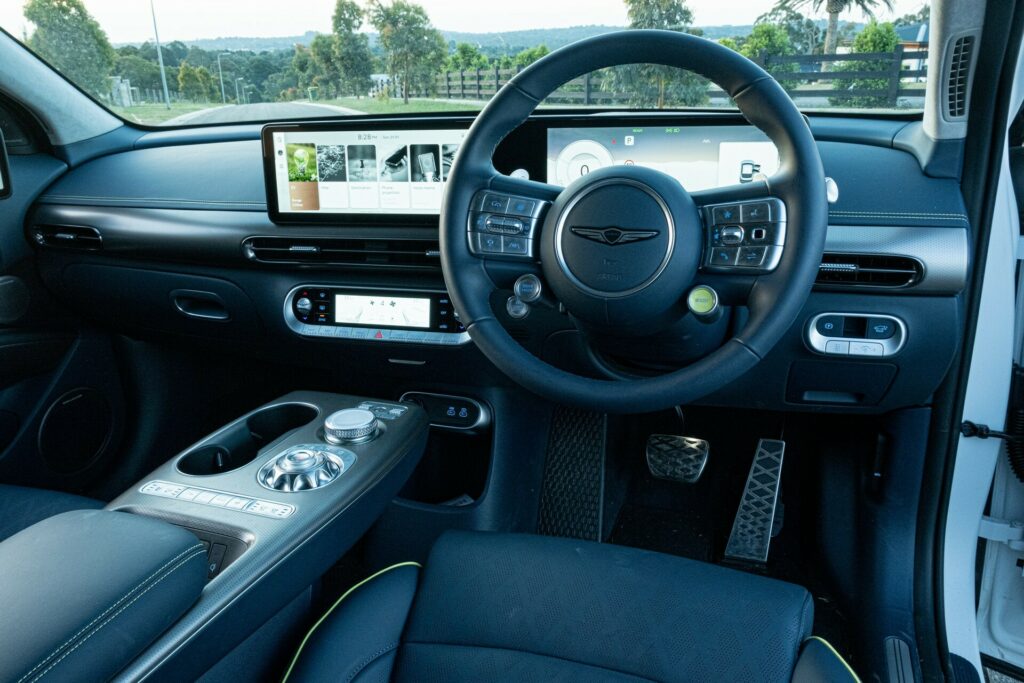
Awe-inspiring performance
Given that the GV60 shares its platform and battery with the Ioniq 5 and EV6, we thought it may feel exactly like its two more affordable siblings on the open road. That couldn’t be further from the truth. First, the power.
With the exception of the almighty EV6 GT, the GV60 Performance AWD is the quickest of the three models and all the available variants. With Boost Mode enabled, the SUV fires to 100 km/h (62 mph) in 4.0 seconds, pinning your head back into the seat and leaving you with a smile from ear to ear. Do a hard launch with the traction and stability control systems disabled and the GV60 will spin up its wheels, leaving thick black lines along the road and sending plumes of tire smoke into the air. Not something you’d expect from an all-electric, all-wheel drive, luxury SUV from Genesis.
It’s the same story when making a turn. If the traction and stability control systems are disabled, the GV60’s inside front wheel will spin up with ease, something that the Ioniq 5 and EV6 will not do.
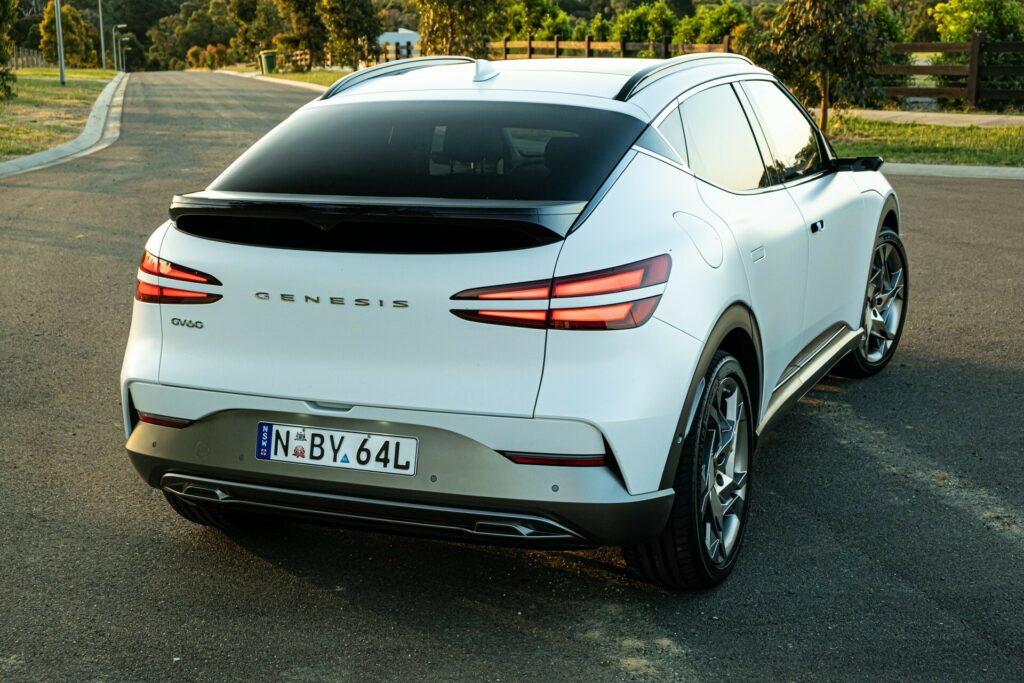
So what’s the GV60 like when driven along a mountain road? Relaxing, that’s what.
Genesis has not produced an EV that eats up a twisting road like a sports car and when driven hard, the weight of the SUV becomes apparent. With that being said, the Michelin Pilot Sport EV tires provide plenty of grip (unless you’re too happy with the throttle) but more importantly, these tires are extremely quiet.
Working in conjunction with the Active Noise Control – Road system that functions as an advanced active noise cancellation system, the GV60 is virtually silent, even at highway speeds. Not only is there almost no noise from the tires but there’s also very little wind noise, thanks in part to the digital side mirrors.
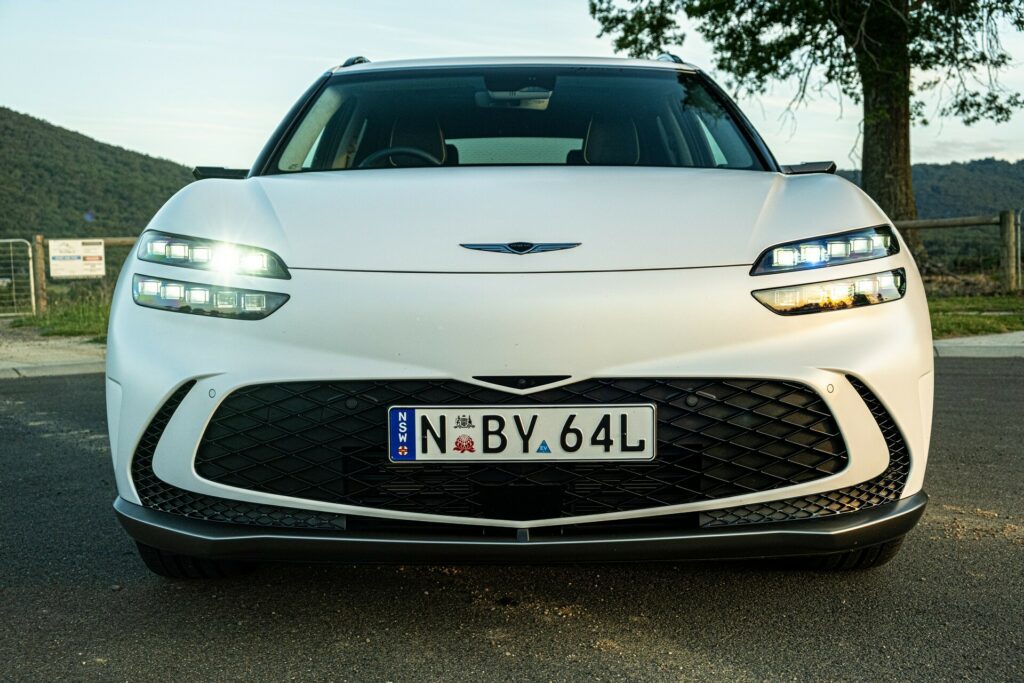
Like other EVs from the Hyundai group, the GV60 offers five levels of adjustment for the regenerative braking that are selected with the paddle shifters behind the steering wheel. They range from a Level 0 setting where the SUV will coast when you lift off the throttle through to i-Pedal where you can drive the Genesis with just one pedal, which is what we did most of the time. We’ve said it before and we’ll say it again; having the ability to adjust the brake regeneration with paddles should become the industry standard. It is so much easier than diving into an EV’s infotainment settings and searching for the brake regeneration settings, as you have to do for some competitors. Genesis has also done an excellent job to ensure the transition from regenerative braking to the mechanical brakes is almost seamless.
What about the digital mirrors?
At first, becoming familiar with the mirrors takes some time, particularly given the quirky positioning of the screen on the driver’s side but after a few hours, we got used to them. Are they necessary? Absolutely not and if we were buying a GV60, we’d order it with traditional mirrors. The digital mirrors work brilliantly but other than slightly improving the aerodynamics of the EV, there’s no real advantage to having them on a day-to-day basis.
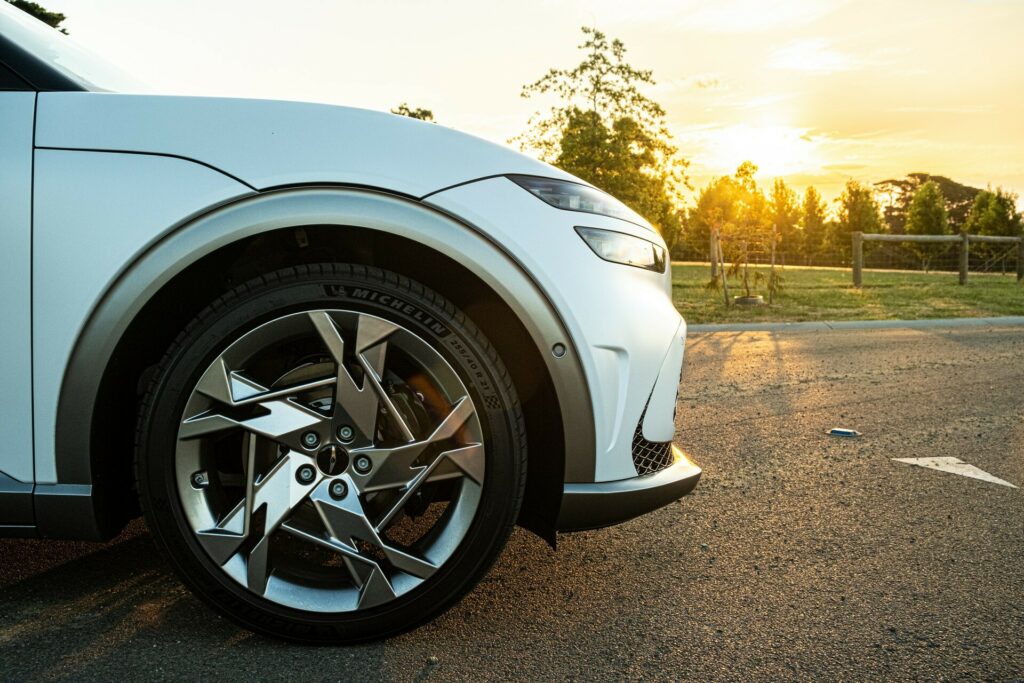
An EV that every luxury buyer should consider
It’s not very often that we test a car with as few flaws as the Genesis GV60 Performance AWD.
From the sheer speed to its dramatic exterior and interior design, its charging speeds, versatility, and luxurious and comfortable ride, Genesis’ first ground-up EV ticks almost every single box. All it needs is an extra 100 km (62 miles) of range.
